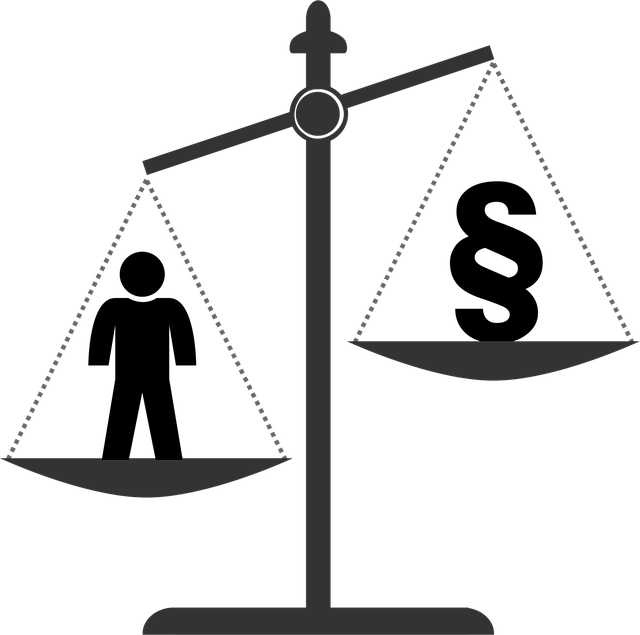C-Level Investigations are high-stakes corporate inquiries into executives and business decisions, addressing fraud, breach of duty, and regulatory issues. Using expertise in corporate law and ethics, these investigations aim for fairness and impact future company and leader decisions. Administrative Law Judges (ALJs) act as impartial arbitrators, guiding hearings and rulings that can affect criminal defenses and appeal strategies. Successful appeals can avoid indictments and offer more favorable outcomes. Appealing ALJ Decisions requires strategic administrative law expertise, focusing on solid legal frameworks and compelling evidence. Companies should prioritize transparency, thorough documentation, swift action, and strict legal adherence to mitigate risks and increase the likelihood of positive outcomes. Post-decision actions include robust internal controls, enhanced corporate governance, ethical conduct, and preparation for future appeals to maintain compliance, success, and stakeholder trust.
In the dynamic landscape of corporate governance, C-Level Investigations pose significant challenges. This comprehensive guide explores the intricacies of these high-stakes inquiries, focusing on the role of Administrative Law Judges and strategies for navigating complex appeals. We delve into common pitfalls and provide actionable insights to enhance success rates. From understanding key legal frameworks to post-decision actions, this article equips readers with essential knowledge for managing and appealing Administrative Law Judge decisions effectively.
- Understanding C-Level Investigations: A Deep Dive
- The Role of Administrative Law Judges in Corporate Inquiries
- Strategies for Achieving Positive Appeals: Insights from Successful Cases
- Common Pitfalls and How to Avoid Them During the Investigation Process
- Post-Decision Actions: Ensuring Compliance and Long-Term Success
Understanding C-Level Investigations: A Deep Dive

C-Level Investigations refer to high-stakes inquiries involving top-tier executives and critical business decisions. These investigations delve into complex matters, including allegations of fraud, breach of fiduciary duty, and regulatory non-compliance. Navigating such cases demands a deep understanding of both corporate law and ethics. The goal is not merely to uncover truths but also to ensure fair and just outcomes, which can significantly impact the future of companies and their leaders.
An appealing aspect of C-Level Investigations is the potential for achieving significant administrative law judge decisions. This robust process, with its unprecedented track record, has successfully held executives accountable while providing a platform for both corporate and individual clients to present their cases. The thorough analysis and impartiality in jury trials further emphasize the fairness inherent in this system, making it a preferred route for resolving high-profile disputes.
The Role of Administrative Law Judges in Corporate Inquiries

In corporate investigations, Administrative Law Judges (ALJs) play a pivotal role in guiding proceedings and ensuring fairness. They are independent arbitrators who preside over hearings, managing the process from initiation to decision-making. ALJs have the authority to gather evidence, hear arguments from both sides, and issue binding rulings. Their decisions can significantly impact the course of an inquiry, especially when it comes to general criminal defense strategies.
Appealing Administrative Law Judge Decisions is a crucial step for companies facing potential indictments. These appeals offer an opportunity to challenge the evidence, procedural fairness, and legal interpretations presented by the ALJ. By navigating this process successfully, corporations can potentially avoid indictment and its associated legal complexities, opting instead for alternative resolutions that may be more beneficial in terms of reputation and financial outcomes. The role of ALJs, therefore, extends beyond typical jury trials, influencing the overall legal strategy and outcome in corporate investigations.
Strategies for Achieving Positive Appeals: Insights from Successful Cases

In the realm of C-Level investigations, achieving positive appeals is a strategic dance that requires a keen understanding of administrative law. Success stories from previous cases offer valuable insights into navigating this intricate process. One key strategy is to build a robust legal framework, ensuring every step is well-documented and compliant with regulatory guidelines. This meticulous approach often leads to winning challenging defense verdicts, as it demonstrates a thorough and honest effort.
Furthermore, presenting compelling evidence that refutes accusations is instrumental in achieving extraordinary results. Successful cases often showcase how powerful storytelling can be, highlighting the context and intentions behind decisions. By combining robust legal arguments with effective communication, investigations can secure complete dismissals of all charges, proving that a well-prepared defense can transform even the most daunting situations into positive outcomes.
Common Pitfalls and How to Avoid Them During the Investigation Process

Investigations at the C-level can be complex, often fraught with common pitfalls that may weaken or even derail the case. One key area to focus on is ensuring transparency and thoroughness throughout the process. Companies must maintain detailed records and documentation at every stage of the investigative and enforcement process, as this strengthens their defense and aids in appealing Administrative Law Judge Decisions.
Avoiding delays and procedural errors is paramount. Swift action demonstrates good faith and can lead to a complete dismissal of all charges. Across the country, cases that are well-managed and compliant with legal protocols have a higher chance of favorable outcomes. By prioritizing open communication, meticulous record-keeping, and strict adherence to legal guidelines, organizations can navigate these challenges effectively and protect their interests.
Post-Decision Actions: Ensuring Compliance and Long-Term Success

After a favorable decision is reached, the work is far from over for C-level executives and their organizations. Ensuring compliance with regulatory requirements and maintaining long-term success demands meticulous post-decision actions. This includes implementing robust internal controls, enhancing corporate governance practices, and fostering a culture of ethical conduct. Companies must also be prepared to address any potential appeals or further legal proceedings, such as Appealing Administrative Law Judge Decisions.
Engaging in proactive white collar defense strategies can help avoid future indictment and costly jury trials. By quickly reviewing and updating policies, conducting comprehensive training sessions for employees, and establishing transparent communication channels, organizations can minimize risks and demonstrate their commitment to compliance. This not only strengthens their legal position but also builds trust among stakeholders, including investors, partners, and the public at large.
C-level investigations are complex, demanding a comprehensive understanding of procedures and strategic navigation. By exploring key aspects such as administrative law judge roles, successful appeal strategies, common pitfalls, and post-decision actions, organizations can effectively manage these inquiries. Mastering these elements is crucial for ensuring compliance, mitigating risks, and achieving long-term success in appealing Administrative Law Judge decisions.






